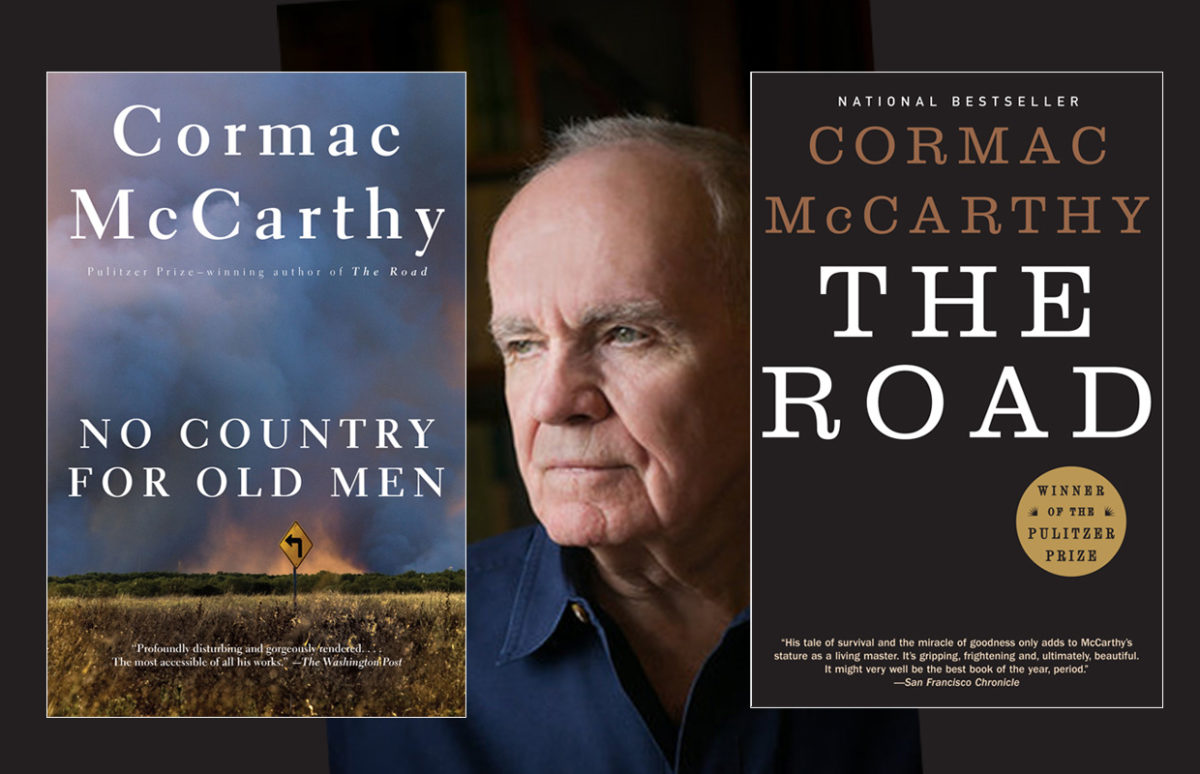
Survival and Morality in Cormac McCarthy’s “The Road”
Cormac McCarthy’s post-apocalyptic masterpiece, “The Road,” explores the intricate dance between survival and morality in a world reduced to ash and decay. The novel paints a haunting portrait of a father and son traversing a desolate wasteland, haunted by memories of a lost past and the desperate hope for a future.
The Imperative of Survival
In this bleak landscape, survival becomes the paramount concern. The father and son resort to questionable acts to stay alive: scavenging for food from abandoned houses, stealing from the weak, and even contemplating cannibalism. McCarthy forces us to question the limits of our own morality when confronted with such extreme circumstances.
Survival instincts override conventional ethics, as the characters grapple with the realization that their actions may compromise their humanity. The father’s decision to kill a group of raiders, for example, triggers a profound moral crisis. His desire to protect his son’s life clashes with the guilt and self-loathing he feels for his actions.
The Conflict of Morality
Alongside the imperative of survival, the novel also explores the enduring power of morality. The father and son cling to fragments of their former beliefs, struggling to find meaning in a world that has lost its bearings. They share stories of the “good old days” and recite lines of poetry, offering a glimmer of hope amidst the darkness.
The encounter with the “good guys” who offer them a sanctuary further highlights the conflict between survival and morality. The father and son are torn between the temptation of safety and the knowledge that their values differ from those of their saviors. They eventually choose to leave, preserving their own ethical code even at the cost of their physical well-being.
The Search for Meaning
The search for meaning becomes intertwined with the struggle for survival. The father and son find solace in small acts of kindness, such as sharing food with a fellow traveler or helping a stranger in need. These moments provide a sense of purpose and connection in a world that seems devoid of both.
The novel suggests that morality transcends survival and offers a fundamental link to our humanity. Even in the most desperate of circumstances, we have a choice: to embrace our baser instincts or strive for something higher. The father and son’s journey becomes a testament to the enduring power of hope and the human spirit’s capacity for redemption.
Critical Perspectives
Critics have lauded “The Road” for its unflinching portrayal of human nature and its exploration of the complexities of morality in extreme conditions.
- The New Yorker hailed it as “a masterpiece of American literature,” praising McCarthy’s “unforgettable” characters and “haunting” vision of a post-apocalyptic world.
- The Guardian called it “a novel that will stay with you long after you finish reading it,” emphasizing its exploration of the “dark side of human nature” and its “profound” insights into the nature of love and loss.
- The Washington Post praised McCarthy’s “spare and poetic” prose, noting that the novel’s “themes of survival, morality, and hope” resonate with readers on a universal level.
Conclusion
Cormac McCarthy’s “The Road” is a profound and unsettling exploration of the human condition in the face of adversity. It forces us to confront our own mortality and to grapple with the complexities of morality when faced with the ultimate test of survival. The novel’s haunting imagery and lyrical prose stay with us long after we finish reading it, leaving us to ponder the enduring power of hope and the limits of our own humanity.
The novel’s exploration of the interplay between survival and morality has garnered widespread acclaim and continues to inspire critical discourse. It stands as a testament to the power of literature to illuminate the darkest corners of the human experience and to challenge our assumptions about right and wrong.
In the end, “The Road” leaves us with an enduring question: what does it mean to be truly human when the world around us has been reduced to ashes? Through the journey of the father and son, McCarthy offers a bleak yet ultimately hopeful vision of human resilience, reminding us that even in the most desperate of times, the spark of morality can endure.
